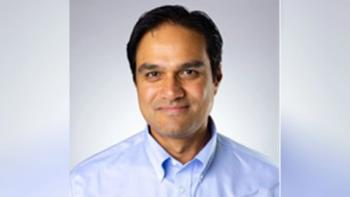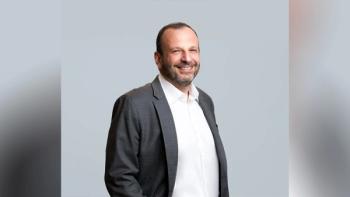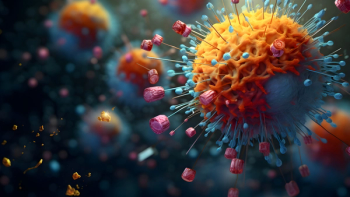
Type 1 Diabetes: A Potential Cure
One company pursues a program for a technology they believe is a potential cure for Type 1 diabetes.
Diabetes is a prevalent problem in our world today. According to WHO, in 2017 there were 9 million people with Type 1 diabetes, most of whom resided in high-income countries.1 In addition, WHO states that “[t]he number of people with diabetes rose from 108 million in 1980 to 422 million in 2014.”1
In an interview, Dr. Anthony Japour, CEO and president of iTolerance, an early-stage regenerative medicine company, shares his insight on the company’s Type 1 diabetes treatment—and a potential cure. Japour is also a physician, professor, researcher, and scientist and brings a patient-centric perspective.
Pharm Exec: What Type 1 diabetes treatments are available to date, including therapies needed to treat the “ripple effects” of Type 1 diabetes (such as organ transplantation)? Where do you feel there is room for improvement?
Japour: People with Type 1 diabetes are treated now with insulin. They also need to take extra special care of themselves because diabetes affects people every single day, and lapses in treatment of eating the wrong foods can trigger serious medical issues. It’s also essential for patients to get regular exercise and watch their diets carefully. For some people, a pancreas transplant or islet cell transplant may be an option.
But clearly, the treatment options for Type 1 diabetes patients are limited. Patients with Type 2 diabetes have many more options. We are excited about the contribution that we can make for Type 1 patients because that’s our focus, and we know there is a real unmet medical need here.
Pharm Exec: As a physician, what did you see as some of the main challenges when working with patients who have Type 1 diabetes?
Japour: I am very conscious of the challenges faced by patients with Type 1 diabetes. T1D is a 24/7 disease. A patient never gets a break. The disease can take a toll on patients; not just physically but also mentally. As with any life-long disease that requires constant attention, there is always the possibility that the patient may get depressed, may have chronic fatigue, may sometimes feel emotionally drained, and may feel isolated. So, it’s essential for people with Type 1 diabetes to not only make sure they are controlling their physical symptoms with insulin, diet, and exercise but also be conscious of the effect that Type 1 diabetes can have on their mental health. The same applies to family members and friends.
As an infectious disease physician, I saw many patients who also have Type 1 diabetes, and I knew I had to consider that when diagnosing and treating them. Again, not just their physical needs but also their mental health.
Pharm Exec: You have a technology, iTOL-101, that you believe could cure Type 1 diabetes. How would that be possible? What would a successful treatment look like?
Japour: Our lead product candidate is iTOL-101, a combination of allogenic islet cell therapy plus iTOL-100. We are still in the early stages of development and pre-clinical stages. Our pre-clinical trials, initially in mice and then confirmed in a non-human primate (monkey) study, published in Science Advances in May 2022, have been extremely encouraging.
We envision this product as a potential cure for Type 1 diabetes using pancreatic islet cells co-implanted with iTOL-100. The key feature of our iTOL-100 immunomodulatory product is removing the need for life-long chronic immunosuppression by creating a pocket of local immune tolerance—that is, allowing foreign transplanted cells to survive without destruction by the body’s immune system. We hope to see a control of blood glucose levels and restoration of insulin secretion without chronic immune suppression.
Our second lead candidate, iTOL-102, is leveraging significant advancements in stem cells to derive pancreatic islets, which allows an inexhaustible supply of insulin-producing cells for use in Type 1 diabetes. Here, insulin-producing stem cells are combined with iTOL-100 to cure Type 1 Diabetes without life-long chronic immunosuppression.
We are optimistic that we are on the right path. We have initiated our dialogue with FDA about how we intend to develop these products, and we are encouraged by their enthusiasm for advancing all-new treatments for Type 1 diabetes.
Pharm Exec: What inspired you to pursue this treatment?
Japour: I have known many people with Type 1 diabetes; and as I mentioned, as a physician, some of my patients with infectious diseases have also had Type 1 diabetes. We estimate that more than one and a half million people in the US live with Type 1 diabetes, and there may be as many as 100,000 with uncontrolled diabetes.
I joined iTolerance because I believe our technology holds great promise for people with Type 1 diabetes and other diseases.
In previous positions within the pharmaceutical industry, I successfully developed and brought other innovative drugs to market. I will use the experience and knowledge I have gained. I am now dedicated to advancing what I regard as a technology that can change medical care and the quality of life for millions of people. I feel like we’re pioneering new pathways.
I have dedicated my professional career to treating patients one-on-one and advancing novel treatments that can help advance medical care. iTolerance technology will allow me to achieve just that.
Pharm Exec: How far off is iTOL-101 from the commercial stage? What do you foresee as some of the commercialization challenges (or challenges in general) you will face for iTOL-100?
Japour: The development of any novel medical technology is never a straight line. We are now in the early stages of development. It will take several years to go through the pre-clinical stage and conduct clinical trials. The development process needs to be rigorous because we deal with health and life. So, I’m reluctant to give a precise timetable. I can tell you that the work we have been doing gives me and the iTolerance team confidence that we are on the right path. iTOL-100 is the platform for all our products. iTOL-101, utilizing cadaveric islets, is not intended as a commercial product but as a proof of concept first in human study only.
iTOL-102, utilizing insulin-producing stem cells, is our intended commercial product providing an inexhaustible supply of islets for transplantation.
Pharm Exec: What challenges do you see for physicians to learn and prescribe iTOL-102 and for patients to use this treatment?
Japour: Whenever an innovation is introduced into the medical setting, we know we must educate practitioners and patients. When the time comes to conduct this educational outreach, we will be ready. In the meantime, we will keep the medical and academic communities focused on diabetes informed about our progress. We intend to be as transparent as possible so that when we get authorization to market, the medical and patient communities will know what we have achieved and have confidence in our products.
Pharm Exec: Does this platform have potential benefits for other diseases?
Japour: We have another program for iTOL-201 for liver disease. You can get a liver transplant, but you must be on immunosuppressive therapy for the rest of your life.
We are partnering with another company, LyGenesis, that is working on using lymph nodes as a bioreactor. They are growing new livers inside lymph nodes. They can do this through a tube inserted in the mouth, stomach, and eventually into the lymph nodes that they inject with liver cells.
They are in the clinic with the technology to grow an ectopic liver. However, it requires immune suppression; so, they came to us. We have a pre-research agreement to combine the two technologies and grow livers, but without the need for lifelong immune suppression.
Pharm Exec: How has your background prepared you for your current role as CEO and president of iTolerance?
Japour: I am a medical doctor by training. I went to Northwestern Medical School and trained at Harvard Hospitals. And yes, being a doctor, seeing patients, and working in drug development over the years have prepared me for my current role.
I’ve been in the pharmaceutical industry since the 1990s. I joined Abbott Laboratories' antiviral drug development group’s leadership team, where I oversaw the Phase 1-3 development team for KALETRA, a blockbuster drug for HIV infection that received accelerated FDA approval in record time as well as other HIV drug combinations. KALETRA was one of the first combination products for HIV on the market, and it became a lifesaving drug for many people. It was a great experience; we got it through FDA in three and a half years.
I am dedicated to advancing the technology developed by iTolerance because there could be so many remarkable therapies based on it that will enable diseases to be cured. Our team is very enthused about what lies ahead.
Pharm Exec: This new technology was recently featured in the peer-reviewed journal, Science Advances. Could you tell us about these findings?
Japour: Yes, the work of Dr. Andres Garcia, Dr. Haval Shirwan, and Dr. Jim Markmann, a transplant surgeon at Harvard Mass General, was featured. Dr. Garcia, from Georgia Tech, is a world-renowned expert in biomaterials. He has been developing the micro gel treatment for some time and is a well-respected researcher. Also, Dr. Shirwan, formerly at the University of Louisville and now at the University of Missouri, an immunologist, has been working with the FasL protein for 25 years.
With the help of a grant from the Juvenile Diabetes Research Foundation, Dr. Garcia and Dr. Shirwan began working together. Their results were so strong that they enlisted the help of Dr. Markmann, and the three of them decided the next logical step was to test the technology with monkeys.
Pharm Exec: Where do you hope to see treatment for Type 1 diabetes in the next five years?
Japour: Type 1 diabetes treatments are a significant area of medical research. FDA just recently approved a new product to delay the onset of stage 3 Type 1 diabetes in adults and children with stage 2 Type 1 diabetes. The drug slows down the body's attack on its own insulin-producing cells and, thus, gives people more time before their disease advances.
We expect further progress in treating Type 1 diabetes in the next few years, including what we seek to achieve. The progress in medicine that we are witnessing today is truly remarkable.
Reference
- WHO, “Diabetes,” https://www.who.int/news-room/fact-sheets/detail/diabetes (accessed Nov. 39, 2022).
Newsletter
Lead with insight with the Pharmaceutical Executive newsletter, featuring strategic analysis, leadership trends, and market intelligence for biopharma decision-makers.




